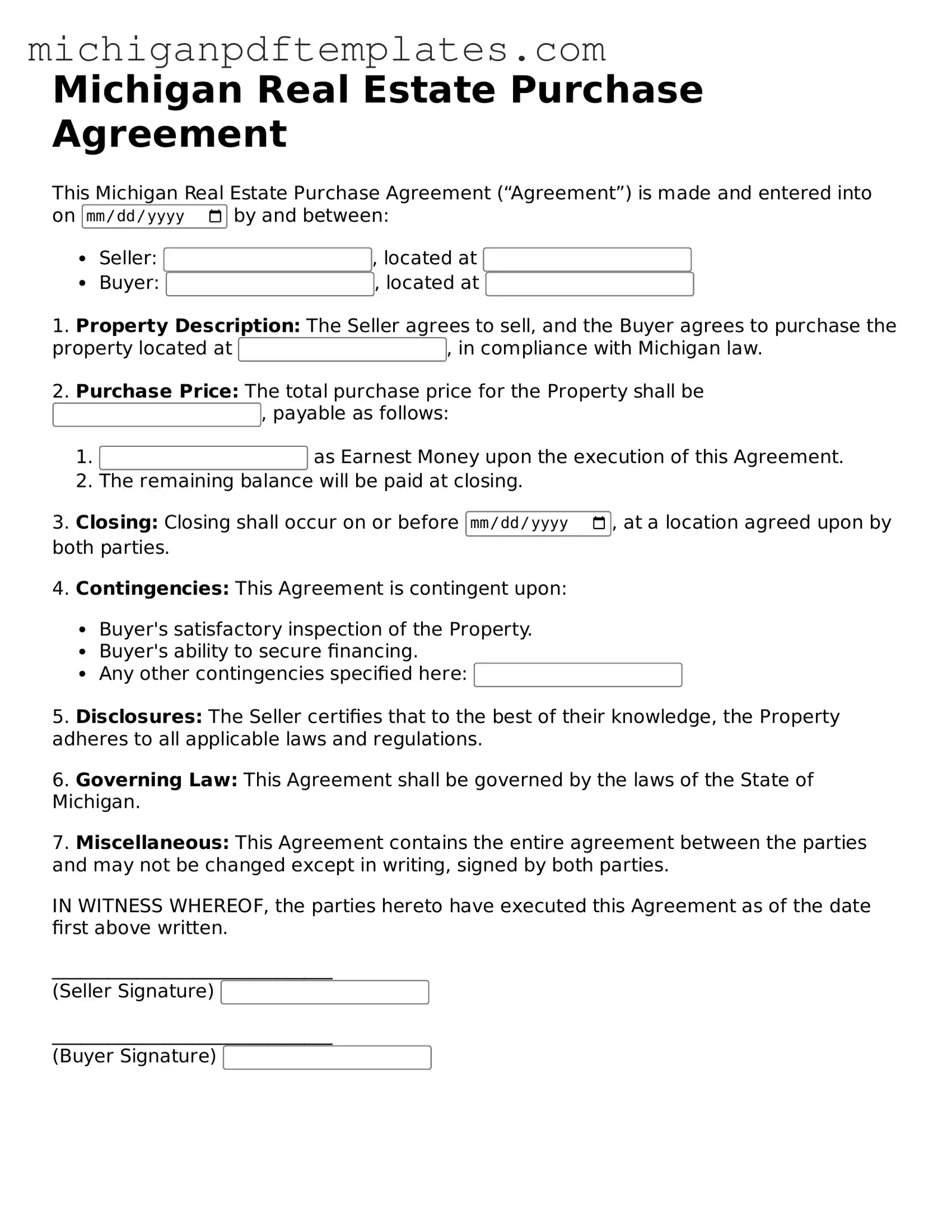Legal Michigan Real Estate Purchase Agreement Template
The Michigan Real Estate Purchase Agreement is a legal document used to outline the terms and conditions under which a property is bought and sold in Michigan. This form serves as a binding contract between the buyer and the seller, detailing essential information such as the purchase price, property description, and closing date. Understanding this agreement is crucial for both parties to ensure a smooth transaction process.
Ready to take the next step? Fill out the form by clicking the button below.
Get Your Form Now

Legal Michigan Real Estate Purchase Agreement Template
Get Your Form Now

Get Your Form Now
or
▼ PDF Form
Finish this form quickly and move on
Fill in and complete Real Estate Purchase Agreement online quickly.